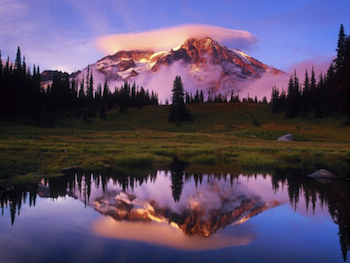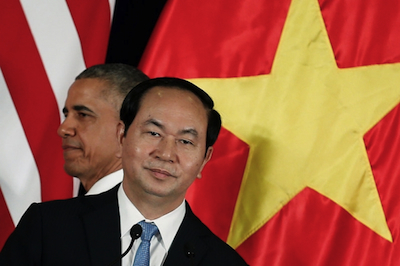I was going to entitle today’s column: “California, Just Freaking Vote Already!!!”, but since I don’t control either the electorate or time, I have been trying to be patient during this waiting period for the California primary to end on June 7.

Regarding this primary season from hindsight, the Democratic presidential primary was decided back in March, when Hillary Clinton gained a majority of votes and pledged delegates after Super Tuesday.
This lead was firmly ensconced in New York, which voted for Clinton near the end of April. Bernie Sanders, in second place, is a little less than 300 delegates behind the presumptive nominee. Clinton will more than likely get enough pledged delegates to clinch the nomination no later than June 14, if not earlier, by way of the California and New Jersey primaries. Yet, Sanders still plans to fight until the last vote is cast.
Why is Bernie still fighting? Framing his political situation in baseball terms, Sanders is at bat in the bottom of the 9th inning, with one man on base in a game where the score is 5-1 in favor of the pitching team, with two outs and the count is 2 balls and 2 strikes. And yet, he is still trying to get a hit.
At this pace, he will either strike out, walk if the pitching collapses, hit one RBI or hit a home run. The odds are high that even in the best of circumstances, he will not score enough to win the game. But at this stage, with his persistence, you have to think winning the nomination is probably not his aim.
You are probably catching news of Sanders entreating and getting the Democratic National Committee to include a delegation of four pro-Sanders representatives to sit on the convention planning committee, which includes Dr. Cornell West, a far-left leaning leader in the African American community and outspoken critic of President Obama. Sanders’ campaign legal team also wrote to the DNC to remove Barney Frank as chair of the convention, for what many gather as a longstanding feud and rivalry between the two during Frank’s time in Congress.
Sanders’ team lost that one. But he is right to persist fighting to the end, as he promised. If not for votes, then for ideas that could improve the process of electing our presidential candidates.
As an Independent running for the first time as a Democrat, Sanders questioned the ‘eccentric’ ways Democrats go about selecting Presidential nominees. Why did Hillary gain more delegates than Sanders in states she lost? Why do we still have caucuses in some states, and open or closed primaries in others? Why are delegates apportioned the way they are? And why do Superdelegates still exist?
For that matter, let’s take this further: why is gerrymandering still allowed to assure a single party majority in one state? Why can’t there be a mandatory voting day on a Sunday when people have time to vote, as President Obama suggested?
As it stands today, awarding correctly apportioned delegates in states Bernie won would not make any difference — Hillary is leading in every other metric from caucuses to closed and open primaries, pledged delegates and popular vote. If that Sanders delegate re-apportionment was to happen now, Clinton’s lead in pledged delegates would not change so drastically that the result would flip. She would still be the nominee.

Curious about what the epic Uranus-Eris conjunction means for you? Intrigued by the dance of Neptune and Chiron in Pisces? In our exciting new class with Eric Francis, The Astrology of Now, your questions will receive thoughtful and insightful answers — and you’ll have lots of fun in the process. Sign up here.
But Sanders is right in pointing out that even though many of these state nominating processes were created to address unfairness or inequity in the past, the way we select nominees to the Presidency of the United States has grown archaic, seemingly corrupt and appears ultimately unfair to the voters.
Yet it’s an absolute cash cow for every news network looking for the next month’s campaign ad buys. Like they do for most products. Which is probably the reason things are as they stand. At least for now. We like to crystallize business ideas into profit-making entities in America, and we have turned our politics of life, death and taxes into a money making machine for the networks. We know who owns those. These are the wheels that keep grinding away at our will to make the most important decision in our little section of the world.
If nothing else comes from the Sanders candidacy, we should be grateful that he’s drawn attention to this major — if not dangerous — flaw in the political machinery of our ‘democracy’. We have an 18th Century machine in the 21st Century — and we’re paying lots of money for it. The machine includes the electoral college, the two-party system, and our founding fathers’ good intentions when they were drawing up the map of the new nation.
Back then we were a mostly rural country ruled by white property owners, and a very large part of our citizenry were not citizens but in custody as slaves; women were consigned to the roles of baby maker and consort. Looking at that history now, have we come any further? Bernie Sanders’ campaign may soon be over, yet good ideas remain from his challenges to our traditional way of doing things, and the way we’ve used those traditions to hold on to power. Just because we did it before doesn’t mean it should work now, and 46% of the voters in the Democratic presidential nominating primaries agree. The DNC better be listening.
Not all ideas stand the test of time. But good ideas should. Like a democratic republic in every sense of the word, one that represents this country and its people who are far different from what we were when we started more than two centuries ago.
After the first Constitutional Convention, Benjamin Franklin was asked, “Well, Doctor, what have we got, a republic or a monarchy?” Franklin responded, “A republic, if you can keep it.”
Have we kept our republic? You tell me. Because, thanks to this primary process in 2016, we can look from the stands and realize that the last batter up is really us, neck-deep in a full count, three balls and two strikes. We’re in a game with serious consequences for the country and the world.
What’s at stake is how much our individual votes do matter for this republic. And how much more they could matter if we fight to make all votes count, from primary to Presidential. Not for Bernie’s team or Hillary’s team now, but for us. And we’re going to need every vote this year to fight what could be the end game. More on that next week. See you in the comments.






 There are still three candidates in the race, although the attempt to marginalize Sanders has — from the very beginning — been substantial. While Donald Trump may prove the most dangerous candidate world wide, Bernie remains the most threatening to the political machine that feeds at the trough of big money and fiscal skullduggery.
There are still three candidates in the race, although the attempt to marginalize Sanders has — from the very beginning — been substantial. While Donald Trump may prove the most dangerous candidate world wide, Bernie remains the most threatening to the political machine that feeds at the trough of big money and fiscal skullduggery.









